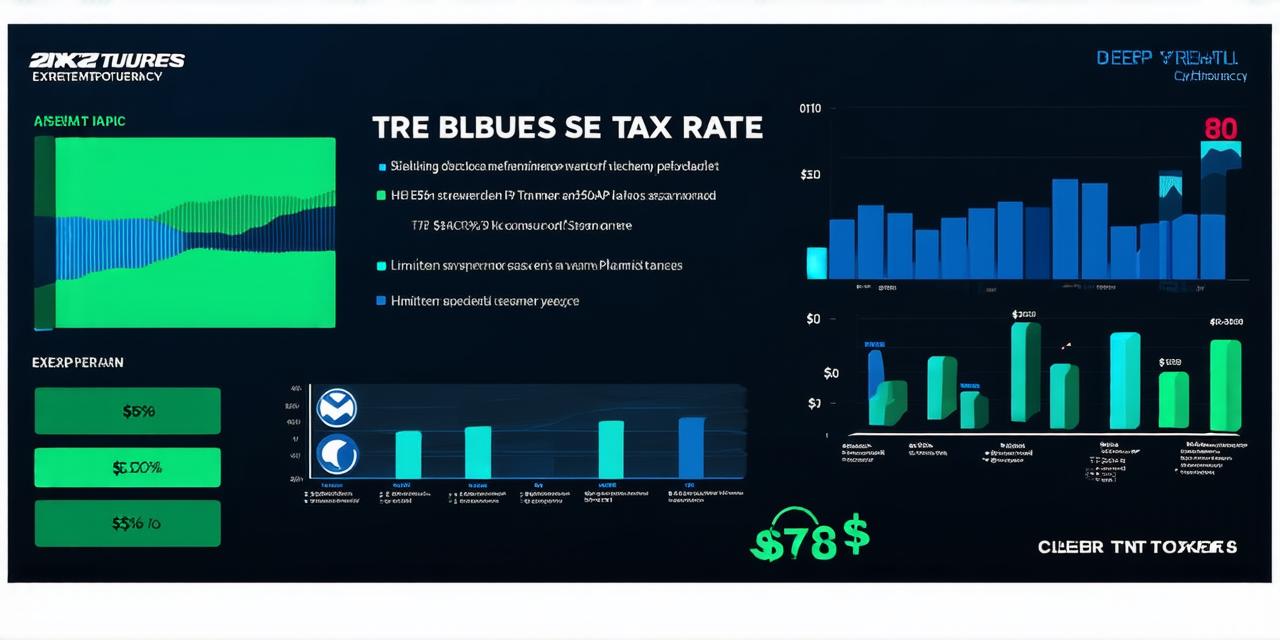The United States: A Clear Tax System
In the United States, the Internal Revenue Service (IRS) has clear guidelines on how to tax cryptocurrencies. The IRS treats cryptocurrencies as property for tax purposes, which means that they are subject to capital gains taxes and income taxes.
Capital gains taxes apply to transactions where an individual buys a cryptocurrency at one price and sells it at a higher price. Income taxes apply to any income derived from cryptocurrencies, such as interest earned or rewards received from staking.
For example, if an individual bought Bitcoin for $10,000 and sold it for $20,000, they would owe capital gains taxes on the $10,000 profit they made. Similarly, if an individual earns interest on their Bitcoin holdings, that interest would be subject to income taxes.
Cryptocurrency exchanges in the United States are required to report transactions and provide information to the IRS, making it easier for individuals to comply with tax laws. However, there have been issues with enforcement, and some individuals have faced penalties for not properly reporting their cryptocurrency transactions.
Europe: A Complex Tax System
In Europe, the taxation of cryptocurrencies varies from country to country. Some countries, such as Germany and Switzerland, have a clear tax system that treats cryptocurrencies as property subject to capital gains taxes. In other countries, such as France and Spain, cryptocurrencies are not considered legal tender, which makes it difficult to track transactions and enforce tax laws.
For example, in Germany, an individual who bought Bitcoin for $10,000 and sold it for $20,000 would owe capital gains taxes on the $10,000 profit they made. However, if the same individual used their Bitcoin to purchase goods or services, those transactions would not be subject to taxation.
Cryptocurrency exchanges in Europe are required to report transactions and provide information to national tax authorities, but there have been issues with enforcement, and some individuals have faced penalties for not properly reporting their cryptocurrency transactions.

Asia: A Limited Tax System
In Asia, the taxation of cryptocurrencies is still a relatively new concept, and many countries do not have clear guidelines on how to tax them. Some countries, such as Japan and South Korea, have implemented clear tax systems that treat cryptocurrencies as property subject to capital gains taxes. In other countries, such as China and India, cryptocurrencies are not considered legal tender, which makes it difficult to track transactions and enforce tax laws.
For example, in Japan, an individual who bought Bitcoin for ¥100,000 and sold it for ¥200,000 would owe capital gains taxes on the ¥100,000 profit they made. However, if the same individual used their Bitcoin to purchase goods or services, those transactions would not be subject to taxation.
Cryptocurrency exchanges in Asia are required to report transactions and provide information to national tax authorities, but there have been issues with enforcement, and some individuals have faced penalties for not properly reporting their cryptocurrency transactions.
The Future of Cryptocurrency Taxation
As cryptocurrencies become more mainstream, it is likely that governments will continue to develop clearer tax systems to ensure compliance and collect revenue from these digital assets. However, the future of cryptocurrency taxation remains uncertain, as new technologies and use cases continue to emerge.
One potential solution to the complexities of cryptocurrency taxation is the development of blockchain-based tax systems that can automatically track transactions and enforce compliance. This could reduce the burden on individuals and exchanges while increasing revenue for governments.
